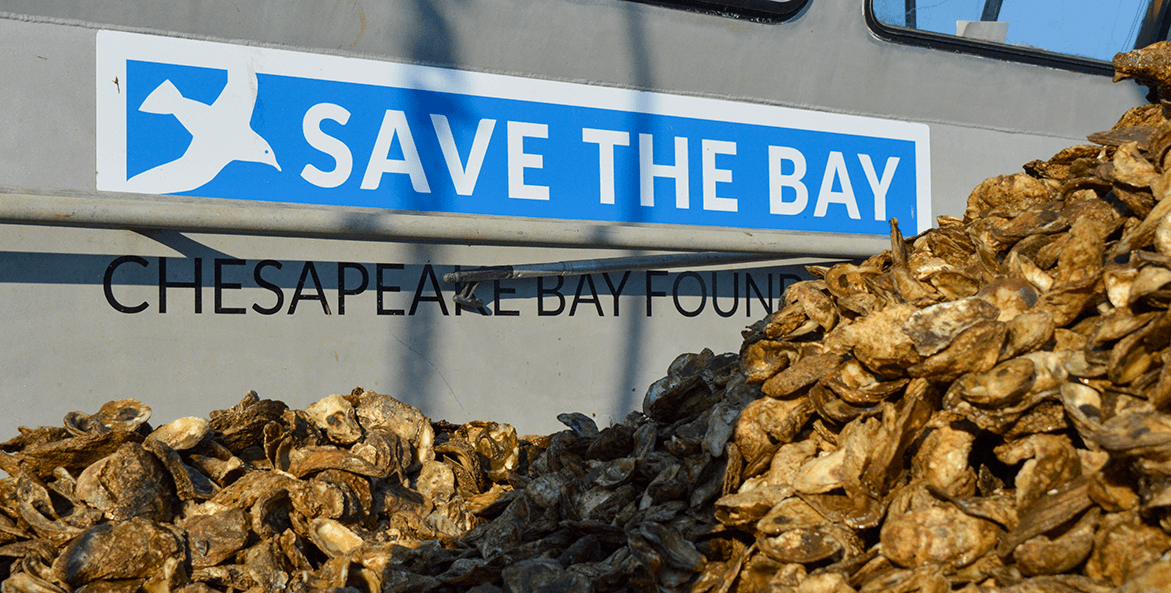Nearly three months after stay-at-home orders were issued across the Chesapeake Bay region due to the COVID-19 pandemic, our restoration work is back in action (with proper safeguards, of course).
From Pennsylvania to Virginia, restoration and volunteer events like tree plantings and Clean the Bay Day were cancelled this year in order to keep our staff and volunteers safe. But the beauty of our oyster gardening program is that the oysters continue growing without us—and now they’re ready to plant!
This year turned out to be a banner year for our Virginia oyster gardeners. Following a drop in rainfall in 2019 and corresponding increase in salinity, oysters thrived and burst our gardeners cages at the seams! This past weekend, nearly 70 families participated in a contactless oyster return, bringing in over 38,000 adult oysters they had been growing off their personal docks in the Virginia Beach area. We planted the oysters on Athey Reef in the Lynnhaven River that same day. With more contactless oyster gardening returns scheduled throughout Virginia in the coming weeks, we’ll soon have more plantings on local reefs to celebrate.
Meanwhile in Maryland, oyster restoration is also in full swing. Following approval from the Maryland Department of Natural Resources in early June, our Maryland Oyster Restoration Center (MORC) received oyster larvae from University of Maryland’s Horn Point Laboratory and got to work!
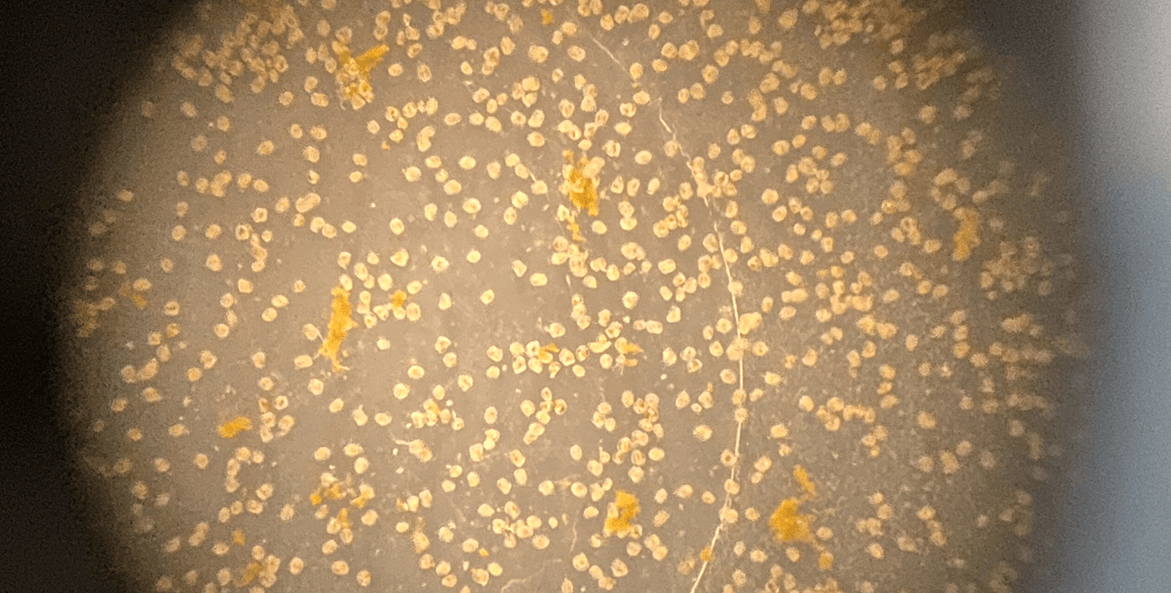
Hundreds of microscopic oyster larvae.
Karl WIlley
Along with recycled oyster shells that had been cleaned and cured, mircroscopic oyster larvae were placed in four setting tanks at MORC. When the two are combined, the millions of microscopic oyster larvae fall out of the water column and settle and grow on the recycled oyster shell.
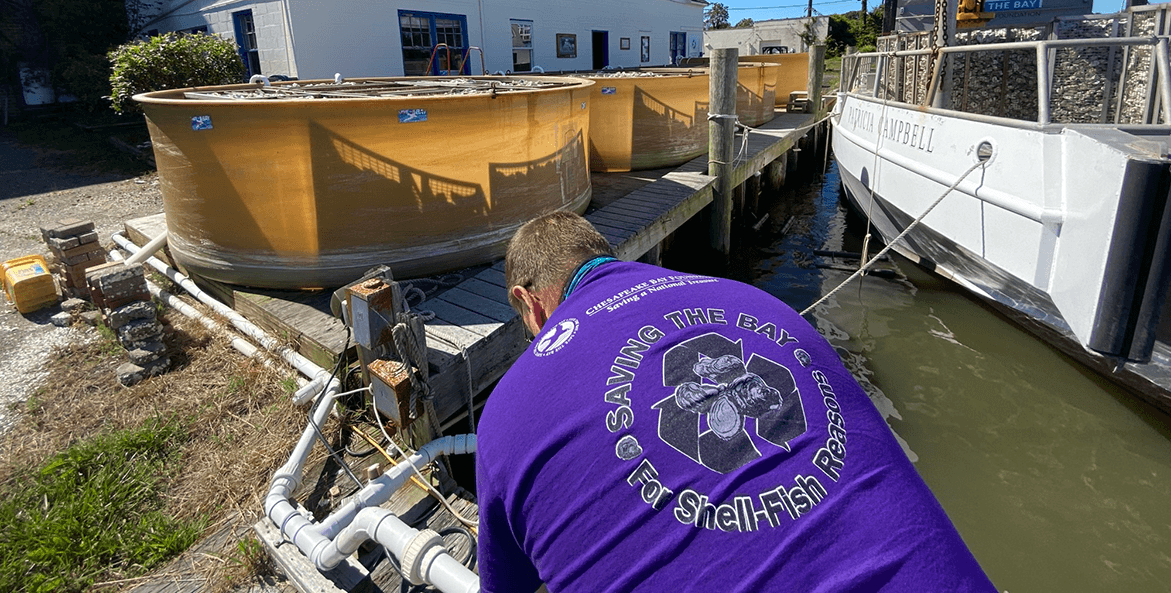
CBF Maryland oyster restoration staff prepare four tanks to set thousands of oyster larvae on recycled oyster shell.
Karl Willey
After 11 days, these spat on shell are ready for their next big adventure!
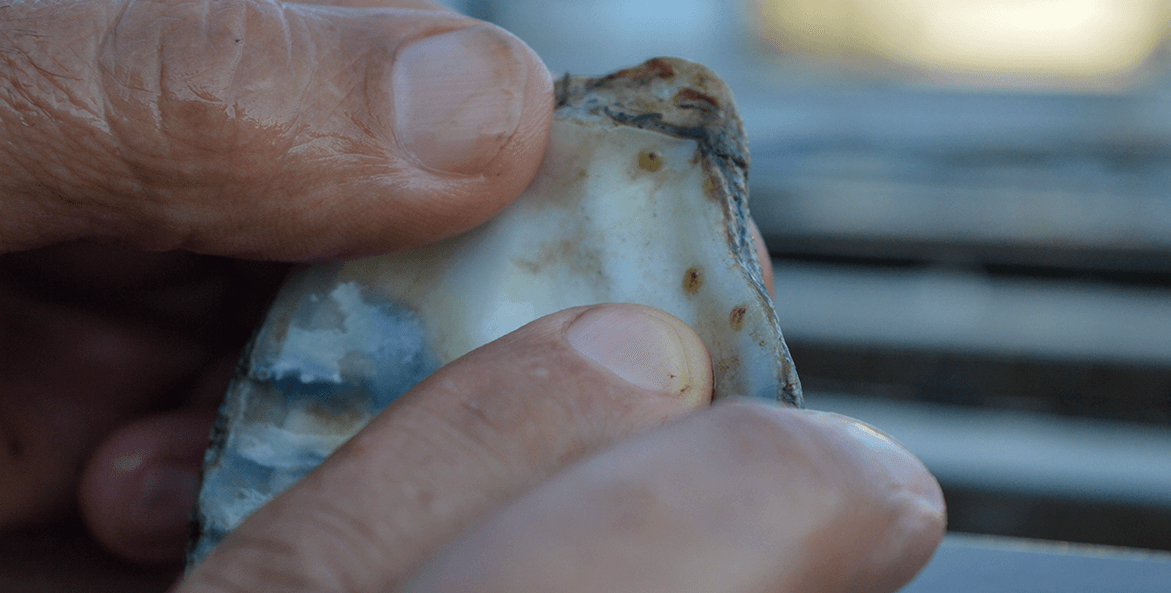
Three spat that have attached to a recycle oyster shell.
Rebecca Long
With the help of some amazing summer interns, MORC staff were able to transfer 25 tons of spat on shell onto the Patricia Campbell, our state-of-the-art oyster restoration vessel that uses its custom conveyor belt system for planting reef material and oysters with pin-point accuracy.
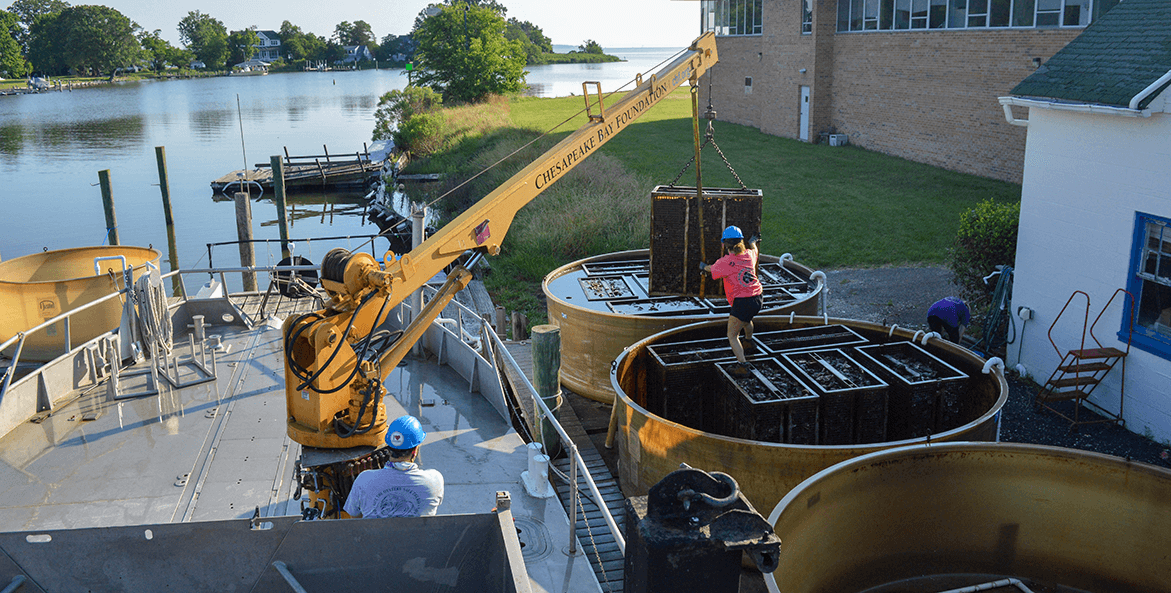
The cages of spat on shell are lifted from the setting tanks to be dumped onboard the Patricia Campbell.
Rebecca Long
As we loaded these spat on shell onto the Patricia Campbell, we collected shells at random to estimate how many spat were able to attach to shell in each tank.
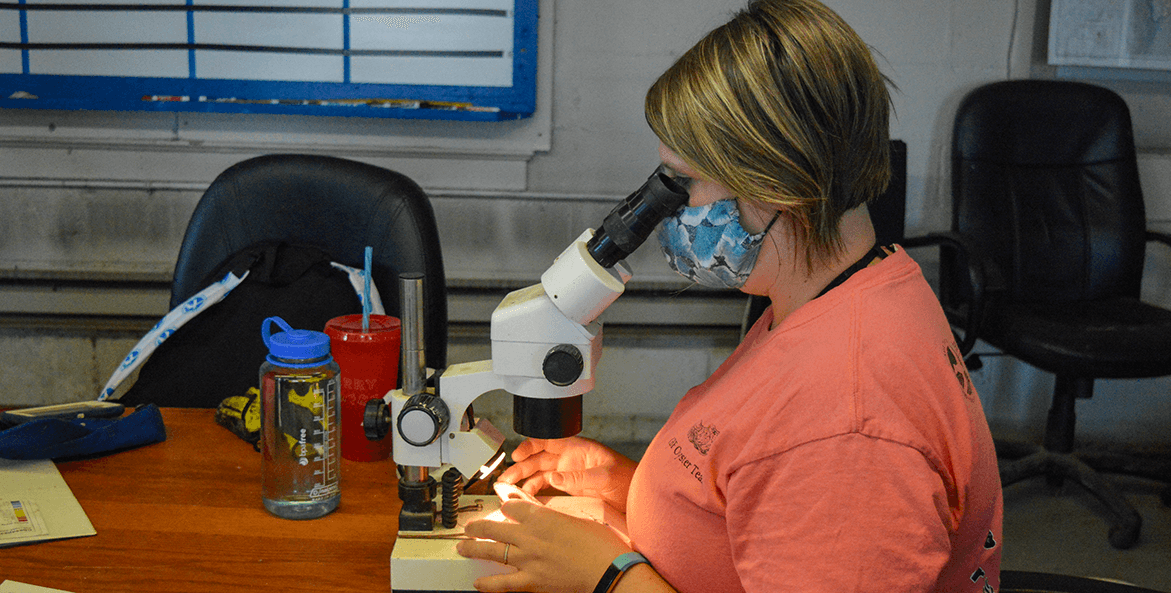
Allison Colden, CBF's Maryland Fisheries Scientist, counts spat on shell.
Rebecca Long
And we can’t forget the dirty work! After the cages are emptied, they have to be cleaned and moved to prep for the next round of spat on shell.
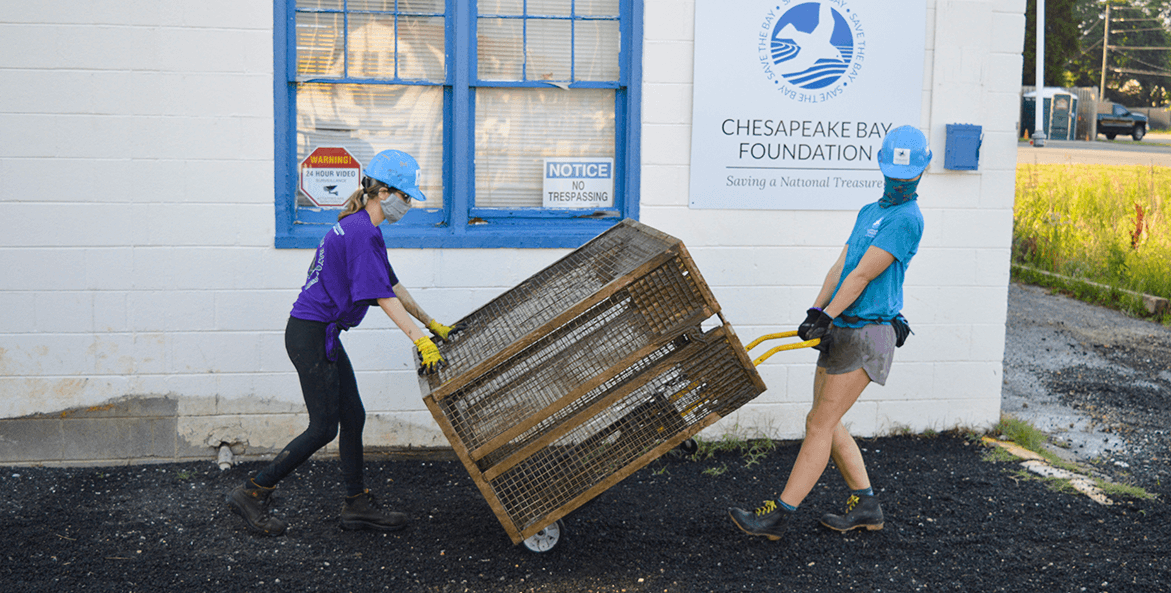
Oyster cages are moved and cleaned to prepare for the next batch of spat on shell.
Rebecca Long
After a few hours of hard work one early morning, the Patricia Campbell set out and planted 2.3 million spat on shell onto sanctuary reefs along the Tred Avon River.
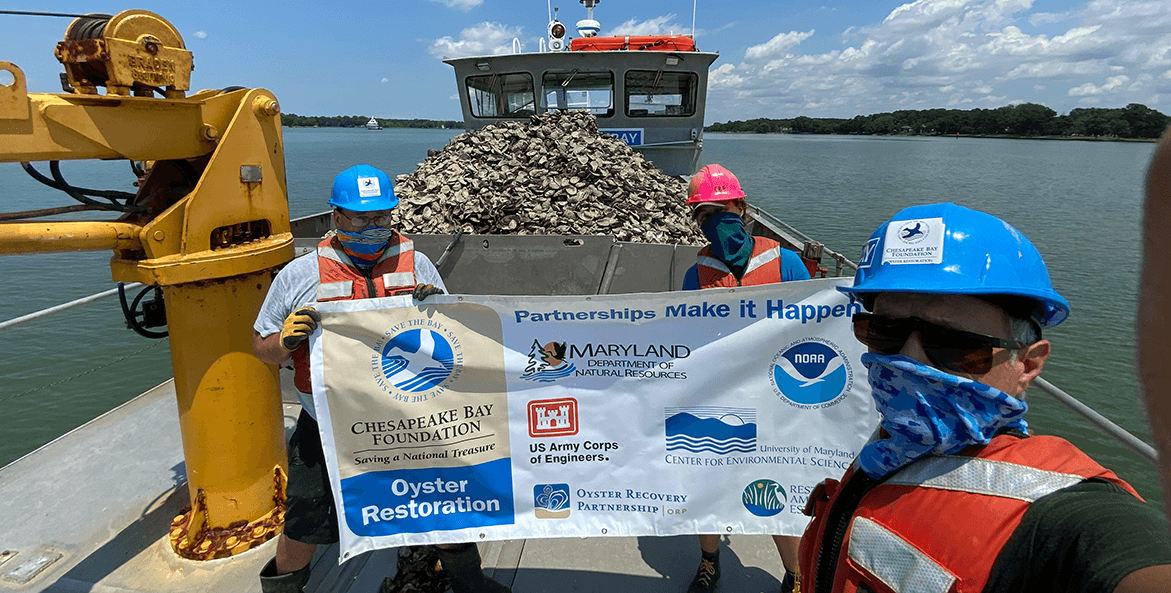
CBF's Maryland oyster restoration staff pose on board the Patricia Campbell prior to plating spat on shell in the Tred Avon River.
Karl Willey
And now, we do it all over again! What can we say? We love saving the Bay for shellfish reasons.

